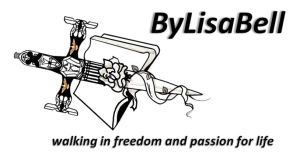Paradigm Shift – I am a Writer
My name is Lisa, and I’m a writer. I didn’t always feel that way.
A paradigm shift happened over time. Not so long ago and in a place quite near, when asked, “What do you do for a living?” my answer came with a sigh. “I’m a business analyst.” Depending on who did the asking, I might add, “And I also write.”
The second part always came with a little trepidation. Could I call myself a writer if no one paid me for my work? Over time, I received a few publication acceptance letters and some small checks. Still uncomfortable calling myself a professional writer, I wasn’t sure the term freelance writer applied.
The paradigm shift happened not as an abrupt change in the way I thought, but rather over time. My thought pattern changed nevertheless.
Although a prolific writer in corporate America, writing dozens of standard operating procedures, I didn’t count that among my successes. I completed them quickly and with few passive verbs, yet carried the title business analyst, not writer. Besides, only fellow employees had access to read my documents—even then, not many employees did so voluntarily. I mourned the fact that a company intranet site housed most of my published writing.
Perhaps an online article series started the process. Putting in time served, I saw no payment for those articles, but gained a wealth of experience. I wrote, polished, received feedback from writing groups, polished some more, and then asked a friend to edit it before polishing each article one more time. I learned about submitting proposed ideas in an informal query and gained insight on dreaded deadlines. In fact, my editor seemed pleased when I beat them. At the time, the experience and publishing credits meant more to me than money. Eventually I longed for paid work.
Then I got an assignment for a local community magazine. So what if I didn’t live in the community? People I knew lived there. The assignment involved an interview surrounded by nature, complete with photos. Only a writer could find ecstasy in a snotty-nosed buffalo. Still no money, but I had fun. The publishing credit came with compliments from the editor. On my way.
Eventually, I took on a ghostwriting project. The gentleman had little money, but I liked his story. He paid me a small amount for the work, but I received additional profit from selling a few books. Still not feeling much like a professional writer, at least I had some income for my efforts. Plus, I learned more during those months than I ever imagined. What to do and not do when you choose to write for others served me well later when I accepted a more lucrative ghostwriting project, the second one arriving after my paradigm shift to believing in myself as a writer.
During a six-month period when I pursued writing full time, I took on technical writing to pay the bills. At last—money in exchange for writing. What a sweet feeling.
Somewhere in the mix, I got an invitation to teach creative writing during a week-long children’s art camp at my church. I wasn’t sure whether that gave me credit as a writer, or simply proved my potential craziness. I already led a writing group, and with a developing love for teaching about writing, accepting the offer seemed logical. Although somewhat challenging to teach first graders through high school students, I didn’t stop after the first year.
After only about a year of leading a group, the offer for a volunteer position as a writing coach over three groups caught me off-guard. If the association director saw me as capable for such a position, I must be a writer and a teacher. The two things I loved best came together, giving me a sweet passion that affirmed others believed in me as a writer.
I wrote and submitted several stories to Chicken Soup for the Soul. After multiple attempts – nothing. Then one day I received an email. I made it into the final round. Woohoo! I’m there. I have arrived. Then the shocking follow up email – I got cut and didn’t make it into that book. The next time I received word of being in the final round, I figuratively held my breath for weeks. The second email arrived and I squealed. My story made it into Just for Preteens. I considered the news a deep notch in my publishing credit stick, with payment and free books to boot.
A few months later, a small check landed in my mailbox unexpectedly for two devotionals in The Secret Place. A small crowning notch came from that achievement. No longer about the money, I felt validated as a writer. I felt like a professional.
Through my writing journey, the paradigm shift happened subtly. I don’t remember why, how or when the change became apparent internally, but one day, someone asked what I did for a living. “I’m a writer—I daylight as a business analyst.”
Paradigm shift.
Without my keyboard and the time to put words together in a way that touches others, I’m lost. Writing makes my heart sing—a passionate song that fuels my life. I’ve traveled a long road and still have miles to go, but I’m heading along the path.
I am a writer.
What makes your heart sing? Do you need a paradigm shift to fulfill your destiny?


Like you, my paradigm shifted over time. For many years, I saw my self as a dabbler in writing. I had an idea for a story and would take it out every once in a while and work on it but never for very long or with any consistency. But the seed was planted.
My paradigm took a major shift when I enrolled in an online writing course with Christian Writers Guild and started to focus on the craft of writing. Four years of courses with the Guild and joining North Texas Christian Writers solidified the change. But like you, I would first tell people what my day job was and then I might say I also write, depending on who was listening.
Somewhere along the way, and I can’t point to a specific event or time, it dawned on me: I am a writer. This is what God has called me to do. To write and to serve other writers as a coach, mentor, group leader, teacher, editor, encourager. To serve Him through writing.
Thanks for an awesome post, Lisa.
Henry, Thank you for sharing your thoughts. I suspect many people, not just writers, miss the truth of how God sees them and thus walking in freedom to pursue their destiny.